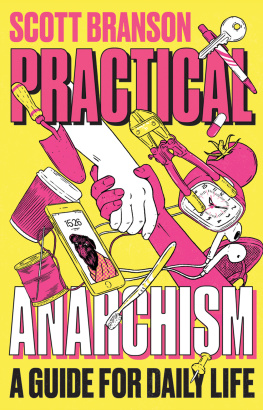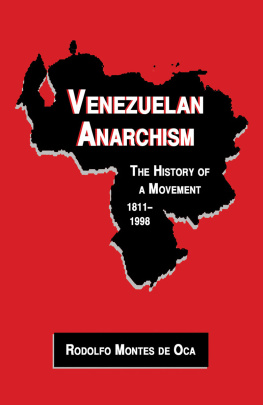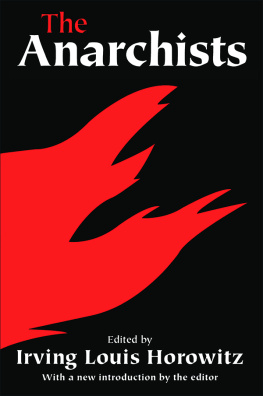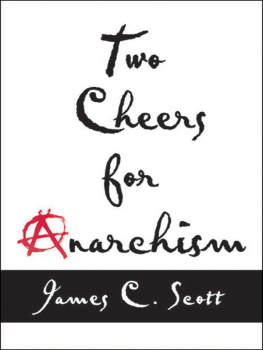Scott - Two Cheers for Anarchism
Here you can read online Scott - Two Cheers for Anarchism full text of the book (entire story) in english for free. Download pdf and epub, get meaning, cover and reviews about this ebook. year: 2012, publisher: Princeton University Press, genre: Politics. Description of the work, (preface) as well as reviews are available. Best literature library LitArk.com created for fans of good reading and offers a wide selection of genres:
Romance novel
Science fiction
Adventure
Detective
Science
History
Home and family
Prose
Art
Politics
Computer
Non-fiction
Religion
Business
Children
Humor
Choose a favorite category and find really read worthwhile books. Enjoy immersion in the world of imagination, feel the emotions of the characters or learn something new for yourself, make an fascinating discovery.

Two Cheers for Anarchism: summary, description and annotation
We offer to read an annotation, description, summary or preface (depends on what the author of the book "Two Cheers for Anarchism" wrote himself). If you haven't found the necessary information about the book — write in the comments, we will try to find it.
Two Cheers for Anarchism — read online for free the complete book (whole text) full work
Below is the text of the book, divided by pages. System saving the place of the last page read, allows you to conveniently read the book "Two Cheers for Anarchism" online for free, without having to search again every time where you left off. Put a bookmark, and you can go to the page where you finished reading at any time.
Font size:
Interval:
Bookmark:
Two Cheers for Anarchism

JAMES C. SCOTT
Princeton University Press
Princeton & Oxford
Copyright 2012 by Princeton University Press
Published by Princeton University Press, 41 William Street, Princeton, New Jersey 08540
In the United Kingdom: Princeton University Press, 6 Oxford Street, Woodstock, Oxfordshire OX20 1TR
press.princeton.edu
All Rights Reserved
Fourth printing, and first paperback printing, 2014
Fifth printing, 2017
Paperback ISBN 978-0-691-16103-7
The Library of Congress has cataloged the cloth edition of this book as follows
Scott, James C.
Two cheers for anarchism : six easy pieces on autonomy, dignity, and meaningful work and play / James C. Scott.
p. cm.
Includes bibliographical references and index.
ISBN 978-0-691-15529-6 (hardcover : alk. paper) 1. Anarchism. I. Title.
HX826.S35 2012
335.83dc23 2012015029
British Library Cataloging-in-Publication Data is available
This book has been composed in Garamond Pro
Printed on acid-free paper.
Printed in the United States of America
5 7 9 10 8 6
The arguments found here have been gestating for a long time, as I wrote about peasants, class conflict, resistance, development projects, and marginal peoples in the hills of Southeast Asia. Again and again over three decades, I found myself having said something in a seminar discussion or having written something and then catching myself thinking, Now, that sounds like what an anarchist would argue. In geometry, two points make a line; but when the third, fourth, and fifth points all fall on the same line, then the coincidence is hard to ignore. Struck by that coincidence, I decided it was time to read the anarchist classics and the histories of anarchist movements. To that end, I taught a large undergraduate lecture course on anarchism in an effort to educate myself and perhaps work out my relationship to anarchism. The result, having sat on the back burner for the better part of twenty years after the course ended, is assembled here.
My interest in the anarchist critique of the state was born of disillusionment and dashed hopes in revolutionary change. This was a common enough experience for those who came to political consciousness in the 1960s in North America. For me and many others, the 1960s were the high tide of what one might call a romance with peasant wars of national liberation. I was, for a time, fully swept up in this moment of utopian possibilities. I followed with some awe and, in retrospect, a great deal of naivet the referendum for independence in Ahmed Skou Tours Guinea, the pan-African initiatives of Ghanas president, Kwame Nkrumah, the early elections in Indonesia, the independence and first elections in Burma, where I had spent a year, and, of course, the land reforms in revolutionary China and nationwide elections in India.
The disillusionment was propelled by two processes: historical inquiry and current events. It dawned on me, as it should have earlier, that virtually every major successful revolution ended by creating a state more powerful than the one it overthrew, a state that in turn was able to extract more resources from and exercise more control over the very populations it was designed to serve. Here, the anarchist critique of Marx and, especially, of Lenin seemed prescient. The French Revolution led to the Thermadorian Reaction, and then to the precocious and belligerent Napoleonic state. The October Revolution in Russia led to Lenins dictatorship of the vanguard party and then to the repression of striking seamen and workers (the proletariat!) at Kronstadt, collectivization, and the gulag. If the ancien rgime had presided over feudal inequality with brutality, the record of the revolutions made for similarly melancholy reading. The popular aspirations that provided the energy and courage for the revolutionary victory were, in any long view, almost inevitably betrayed.
Current events were no less disquieting when it came to what contemporary revolutions meant for the largest class in world history, the peasantry. The Viet Minh, rulers in the northern half of Vietnam following the Geneva Accords of 1954, had ruthlessly suppressed a popular rebellion of smallholders and petty landlords in the very areas that were the historical hotbeds of peasant radicalism. In China, it had become clear that the Great Leap Forward, during which Mao, his critics silenced, forced millions of peasants into large agrarian communes and dining halls, was having catastrophic results. Scholars and statisticians still argue about the human toll between 1958 and 1962, but it is unlikely to be less than 35 million people. While the human toll of the Great Leap Forward was being recognized, ominous news of starvation and executions in Kampuchea under the Khmer Rouge completed the picture of peasant revolutions gone lethally awry.
It was not as if the Western bloc and its Cold War policies in poor nations offered an edifying alternative to real existing socialism. Regimes and states that presided dictatorially over crushing inequalities were welcomed as allies in the struggle against communism. Those familiar with this period will recall that it also represented the early high tide of development studies and the new field of development economics. If revolutionary elites imagined vast projects of social engineering in a collectivist vein, development specialists were no less certain of their ability to deliver economic growth by hierarchically engineering property forms, investing in physical infrastructure, and promoting cashcropping and markets for land, generally strengthening the state and amplifying inequalities. The free world, especially in the Global South seemed vulnerable to both the socialist critique of capitalist inequality and the communist and anarchist critiques of the state as the guarantor of these inequalities.
This twin disillusionment seemed to me to bear out the adage of Mikhail Bakunin: Freedom without socialism is privilege and injustice; socialism without freedom is slavery and brutality.
Lacking a comprehensive anarchist worldview and philosophy, and in any case wary of nomothetic ways of seeing, I am making a case for a sort of anarchist squint. What I aim to show is that if you put on anarchist glasses and look at the history of popular movements, revolutions, ordinary politics, and the state from that angle, certain insights will appear that are obscured from almost any other angle. It will also become apparent that anarchist principles are active in the aspirations and political action of people who have never heard of anarchism or anarchist philosophy. One thing that heaves into view, I believe, is what Pierre-Joseph Proudhon had in mind when he first used the term anarchism, namely, mutuality, or cooperation without hierarchy or state rule. Another is the anarchist tolerance for confusion and improvisation that accompanies social learning, and confidence in spontaneous cooperation and reciprocity. Here Rosa Luxemburgs preference, in the long run, for the honest mistakes of the working class over the wisdom of the executive decisions of a handful of vanguard party elites is indicative of this stance. My claim, then, is fairly modest. These glasses, I think, offer a sharper image and better depth of field than most of the alternatives.
In proposing a process-oriented anarchist view, or what might be termed anarchism as praxis, the reader might reasonably ask, given the many varieties of anarchism available, what particular glasses I propose to wear.
Next pageFont size:
Interval:
Bookmark:
Similar books «Two Cheers for Anarchism»
Look at similar books to Two Cheers for Anarchism. We have selected literature similar in name and meaning in the hope of providing readers with more options to find new, interesting, not yet read works.
Discussion, reviews of the book Two Cheers for Anarchism and just readers' own opinions. Leave your comments, write what you think about the work, its meaning or the main characters. Specify what exactly you liked and what you didn't like, and why you think so.

















